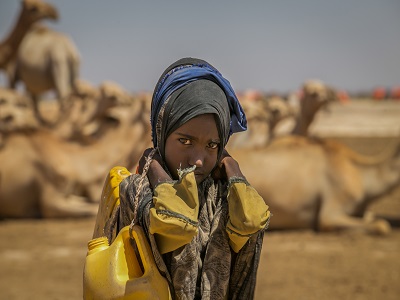Cover image: © UNICEF/UN052531/Ayene
This course introduces the theme of children and climate change, with the aim to provide a children's perspective to the discussions on how to deal with this global crisis.
Through this module, you will learn how children are and can be impacted by climate change, how children's resilience could be strengthened, and how measures to reduce greenhouse gas (GHG) emissions could lead to a wide range of benefits. You will also be reflecting on solutions, focusing on the empowerment of children as actors of change and on the key role of governments in children's protection.
Learning objectives
At the end of this course, you will be able to:
- Explain how climate change can affect children
- Describe how measures to build climate resilience and mitigate climate change can benefit children
- Illustrate key instruments and good practices for empowering children to act on climate change
- Identify opportunities for protecting children's rights in a changing climate
Audience
This course is suitable to all staff of any level of seniority, of technical or non-technical background, who want to learn the basics about the subject.
Length
It should take you about 30-45 minutes to complete this self-paced course.
Methodology
This course is composed of a single short self-paced animated module, including various examples and activities.
Structure
This course is composed of five sections:
- The Impact of Climate Change on Children
- Strengthening Children's Resilience to Climate Change
- The Benefits of Climate Change Mitigation for Children
- Empowering Children to Act on Climate Change through Education
- A Climate Change Agenda for Children
Contact details
Cristina Colon, Policy Specialist, UNICEF
ccolon@unicef.org
Cristina Rekakavas, Training Assistant, Green Development and Climate Change, UNITAR
Cristina.rekakavas@unitar.org
